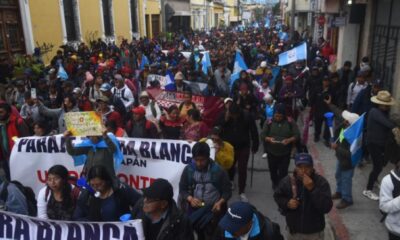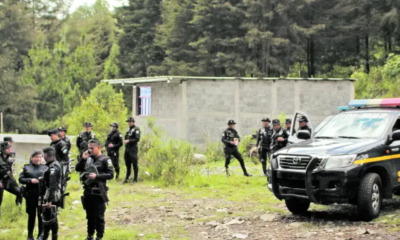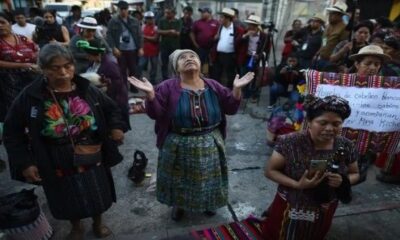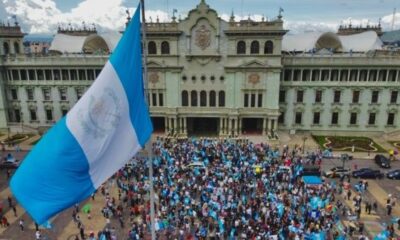Central America
The situation of Guatemalan journalists exiled in the last four years is “very critical”
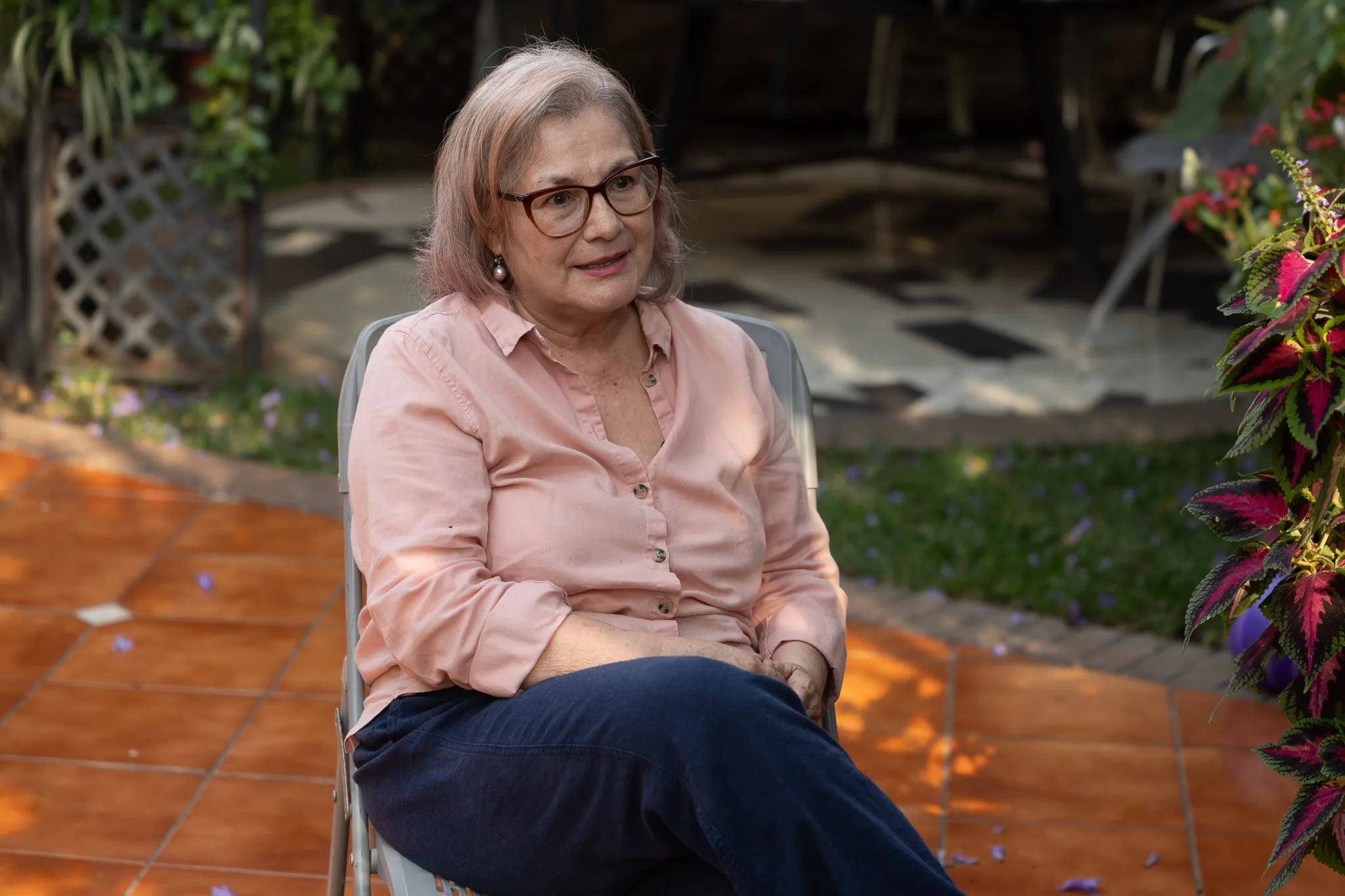
Journalist and defender of freedom of expression Evelyn Blanck warns that the reporters who have been forced to leave Guatemala are in a “very critical” situation and that there are still no conditions for them to return to the country, despite the positive turn in the press that has been given with the Government of the new President Bernardo Arévalo de León.
Blanck is the coordinator of the Civitas Center, an organization that seeks to ensure the freedom of the press in the Central American country and that has coordinated support for more than twenty journalists who have had to go into exile, after denouncing political persecution against her in the last four years.
“Colleagues in exile are in a critical situation,” the journalist warns in an interview with EFE and assures that among the twenty colleagues who were forced to leave Guatemala in recent years, there are three mothers who are separated from their children and many others who struggle to find conditions to continue practicing journalism.
Several of them “are struggling to survive because they came out with emergency funds, with financing for three months and they never have anything guaranteed,” says this journalist with more than 30 years of experience.
According to an analysis by the social organization Red Rompe El Silencio, 44% of Guatemalan journalists exiled have had to stop exercising their profession and most are refugees in the United States, Mexico, Costa Rica and seven other countries.
This crisis of “political persecution” against the press in several Central American countries revealed that there is no comprehensive system of care for journalists who are forced to leave their country, says the activist.
“The only thing we have left is to try to work with the Central American network of journalism solutions so that colleagues have conditions to stay outside because today Guatemalans, Salvadorans and Nicaraguan exiles cannot return,” Blanck concludes.
Journalists Juan Luis Font, director of the radio program Con Criterio and Michelle Mendoza, who was a correspondent for the CNN network in Guatemala, top the list of Guatemalan communicators who have had to go into exile.
In Blanck’s opinion, the Government of the new president of Guatemala exhibits “an institutional discourse that recognizes the work of the press, although its ability to maneuver is very little because the State is still co-opted.”
“Of course there is tension, but it is different from the administrations of Alejandro Giammattei (2020-2024) and Jimmy Morales (2016-2020), where there was an absolute public contempt for the press and that is over,” says the journalist.
According to the Association of Journalists of Guatemala (APG), during the administration of Giammattei there were more than 400 attacks on the press by public officials, and the vast majority of these were dismissed and not investigated by the authorities.
That is why Blanck refers to the Government of Arévalo de León as “a respite that we do not know how long it will last,” and warns that there are no conditions for journalists who left the country under persecution to return while the co-optation of the Judicial Body and the Public Ministry (Public Prosecutor’s Office) persists.
“Doing journalism in Guatemala has always been facing a country of censorship, it is facing power. This is one of the most difficult countries to do quality journalism,” says Blanck.
The Guatemalan Prosecutor’s Office, headed by Consuelo Porras Argueta, has led several cases against communicators in recent years and the most emblematic is that of José Rubén Zamora Marroquín, an internationally recognized journalist who was arrested on July 29, 2022, a few days after launching criticism against the close circle of the then president, Alejandro Giammattei.
Zamora Marroquín, who recently served 600 days in prison, is still waiting for the repetition of the trial against him for an alleged money laundering case and indicated that since the arrival of Arévalo de León to power in January, he has been guaranteed decent conditions in his arrest.
Central America
Washington Imposes Visa Ban on La Modelo Director Amid Crackdown in Nicaragua

The United States government announced Wednesday that it has imposed visa restrictions on Roberto Clemente Guevara Gómez, director of Nicaragua’s largest prison, La Modelo, for his involvement in actions that violate human rights.
In a statement, U.S. Secretary of State Marco Rubio said the measure is intended to promote accountability for abuses committed under what he described as the “Murillo-Ortega dictatorship” against political prisoners.
Rubio specified that Guevara Gómez was designated for participating in “a gross violation of the human rights of a political prisoner.” The sanction was issued under the 2024 Department of State, Foreign Operations, and Related Programs Appropriations Act, which bars the sanctioned individual — and potentially immediate family members — from entering the United States.
“United States demands the immediate and unconditional release of all political prisoners unjustly detained in Nicaragua,” the statement added.
Ongoing tensions between Washington and Managua
Washington rejected Nicaragua’s November 2021 elections, in which President Daniel Ortega and his wife, now co-president Rosario Murillo, were reelected while seven potential challengers were in prison.
Relations between the two countries remain tense amid expanding U.S. sanctions and increasing diplomatic pressure on the Nicaraguan government.
On January 10, marking Ortega’s 19 years in power, Nicaragua released “dozens of detainees,” including political prisoners. The move came one day after the U.S. Embassy in Managua stated that “more than 60 people” remain “unjustly detained or disappeared” in the Central American nation.
U.S. officials have continued to push for the “unconditional release” of political prisoners rather than selective or temporary releases.
Ortega, 80, governs alongside Murillo with consolidated authority, having strengthened executive power through constitutional reforms and security measures, while the opposition has been weakened by imprisonment, exile, and the revocation of citizenship and property rights.
Central America
Guatemala’s Attorney General Consuelo Porras Loses Bid for Constitutional Court Seat

Guatemala’s attorney general, Consuelo Porras, who has been sanctioned by the United States over corruption allegations, lost a key vote on Monday in which a public university selected two of the 10 magistrates for the country’s highest constitutional court. However, she could still seek a seat through another nominating body.
The election of five full magistrates and five alternates to the Corte de Constitucionalidad (CC) is taking place gradually over more than two months and is considered crucial in the ongoing struggle for control of Guatemala’s judiciary, which critics say has long been influenced by a political and economic elite accused of corruption.
According to results announced at a press conference, the governing council of the Universidad de San Carlos de Guatemala (USAC) rejected Porras, who had applied as either a full or alternate magistrate, and instead chose two candidates aligned with the university rector. The vote was held at a hotel in Antigua, about 35 kilometers from the capital.
Despite the setback, Porras — whose term as attorney general ends on May 16 — could still be nominated to the Constitutional Court by the Corte Suprema de Justicia, which appoints two magistrates. The remaining six are selected by the president, the bar association and Congress.
“It’s always a possibility,” the 72-year-old lawyer said days earlier when asked by reporters whether she would seek nomination through another institution if she lost the USAC vote.
Porras has been sanctioned by Washington and the European Union for allegedly attempting two years ago to block the inauguration of President Bernardo Arévalo and for pursuing legal actions against anti-corruption prosecutors, judges, journalists and social leaders since taking office in 2018.
The USAC vote was controversial because most members of the university’s governing council are serving beyond the expiration of their terms. Students, academics and social activists staged protests against Porras’ candidacy.
Central America
Teens visit ETESAL substation to learn about responsible energy use

Within the framework of World Energy Day, teenagers from the institutional care center Ciudad Niñez y Adolescencia (CNA), run by the Consejo Nacional de la Primera Infancia, Niñez y Adolescencia (Conapina), took part in an educational visit to a substation operated by Empresa Transmisora de El Salvador (ETESAL) in Santa Ana.
The aim of the activity was to give participants first-hand knowledge of how the country’s electricity transmission system works and to highlight the importance of responsible energy use.
During the tour, the group learned about the process that delivers electricity to homes, businesses, and industries. They were also introduced to specialized technical equipment and the safety measures required to ensure an efficient and reliable service.
Before the guided visit, the teenagers attended two informative talks and an environmental awareness session focused on the relevance of responsible energy consumption and its impact on the environment.
According to Nelson Menjívar, head of Conapina’s programs unit, the initiative serves a dual purpose. “It has two objectives: a recreational component and an educational one, so that adolescents can learn about the work carried out by ETESAL and how some of the resources they use at home are generated. This is in keeping with the guarantees established under the Crecer Juntos law; we ensure those rights for children,” he said.
Menjívar stressed that these activities help young people better understand how essential services function in their daily lives while promoting efficient consumption habits and a culture of environmental respect and care.
The event is part of the principle of shared responsibility set out in the Crecer Juntos law, promoted by the administration of Nayib Bukele, which states that families, society, private companies, and the State must work together to safeguard the comprehensive well-being of children and adolescents.
-
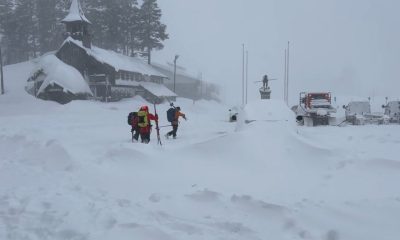
 International2 days ago
International2 days agoNinth Victim Recovered After Deadliest U.S. Avalanche in Decades
-

 International3 days ago
International3 days agoTrump Defies Supreme Court With New 10% Global Tariff
-

 International4 days ago
International4 days agoThree Injured in Mail Package Explosion at Buenos Aires Gendarmerie Academy
-

 International4 days ago
International4 days agoU.S. Targets Members of Outgoing Boric Administration With Visa Revocations
-

 International1 day ago
International1 day agoOver 40 Million Affected by Major Snowstorm in Northeastern U.S.
-

 International1 day ago
International1 day agoNine People Killed in Two Armed Attacks in Manabí, Ecuador















































































